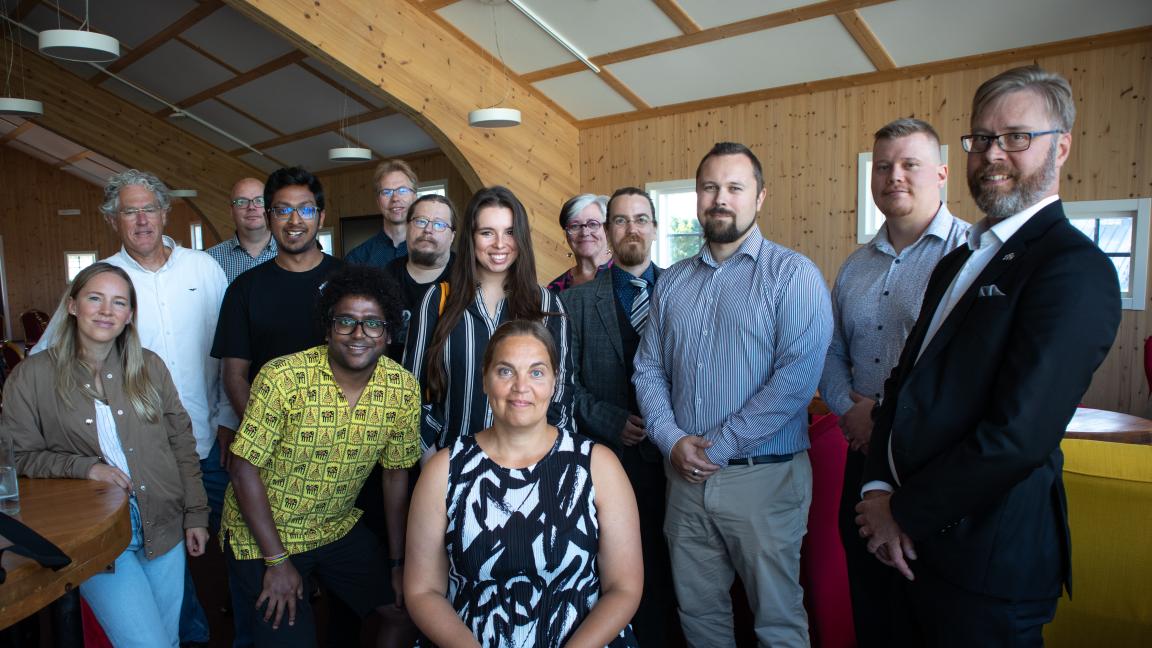The international ESA Business Incubation Centre (ESA BIC) network aims to inspire young entrepreneurs to commercialise space-related business ideas. The aim is to develop viable and successful businesses through the technical and commercial expertise and support provided by the incubation centres.
Selected entrepreneurs and start-ups in the incubator programme receive seed capital as well as initial office space and laboratory access.
The University of Vaasa has signed a partnership agreement with the Aalto University's Aalto Startup Center, which coordinates the activities of ESA BIC Finland. Together with the Turku Science Park, the University of Vaasa forms the West Coast Hub of ESA BIC Finland, covering the region from Southwest Finland to Ostrobothnia.
A new ESA BIC Finland Vaasa Site will be established at the University of Vaasa. It will be physically located in the Technobothnia Technology Centre, along with the University of Vaasa's Space Data Laboratory. In addition to the West Coast, ESA BIC Finland has expanded its operations to the Tampere region this year.
Director and Professor Heidi Kuusniemi, who leads space economy research projects at the University of Vaasa, hopes that companies aiming for the new space economy will find their way to ESA's business incubation programme.
– In addition to funding from ESA and Business Finland, as well as individual and group coaching, the companies selected for the incubator will have access to ESA's research infrastructure and programmes, as well as a valuable network of partners, says Director Kuusniemi.
The new incubation hub strengthens the University of Vaasa's innovation services
ESA's business incubation activities will become part of the University of Vaasa's innovation services.
– Through the new incubation centre, the University can leverage its expertise in the space economy to establish new companies and enhance the impact of our research and education. The ESA BIC hub also utilises and develops the university´s existing forms of innovation, entrepreneurship, and commercialisation support. At the same time, the incubator supports the thriving startup ecosystem in the region, says Philipp Holtkamp, Senior Specialist at the University of Vaasa.
Start-ups applying for the incubator programme will be evaluated in Vaasa this week
Startups with business ideas related to space technology or operations can apply to join ESA's business incubator programme throughout the year. The selection committee, composed of representatives from the European Space Agency's incubator programme, ESA BIC Finland, and Business Finland, makes decisions on incubator admissions twice a year. The selections for the application round that closed in June will be made this week in Vaasa, where startups will present their ideas to the committee.
Seed funding for the selected companies will be provided in collaboration with Business Finland.
University of Vaasa has become a major player in the space economy
In recent years, the University of Vaasa has evolved into a significant and internationally recognized expert in the emerging space economy. The University currently operates the Kvarken Space Center, an innovation hub for the space economy that maintains an open space data portal and a satellite data reception station, along with a space data laboratory.
– In the space economy, entirely new, innovative solutions and services can be created by combining our regional strengths, technological expertise and business understanding. These new solutions and services can cater to both scientific research needs and commercial applications, says Professor Kuusniemi.
Space-related projects at the university and the expertise they generate strengthen ESA's incubation activities in the region. Projects such as the ORBIT initiative, funded by the Ostrobothnia Regional Council and the European Regional Development Fund, which started in May last year, and AuroraSpace, a joint Nordic project funded by the EU's Interreg Aurora programme, which starts in October, advance space economy research and development, as well as the utilisation of space technology and data in business.
Further information
Heidi Kuusniemi, Professor and Head of the Digital Economy Research Platform, University of Vaasa heidi.kuusniemi@uwasa.fi, tel 029 449 8504
Philipp Holtkamp, Specialist in Innovation, University of Vaasa, philipp.holtkamp@uwasa.fi, tel 029 449 8585
Elina Huculak, Project Manager at ESA BIC Finland Vaasa Site, University of Vaasa, elina.huculak@uwasa.fi
